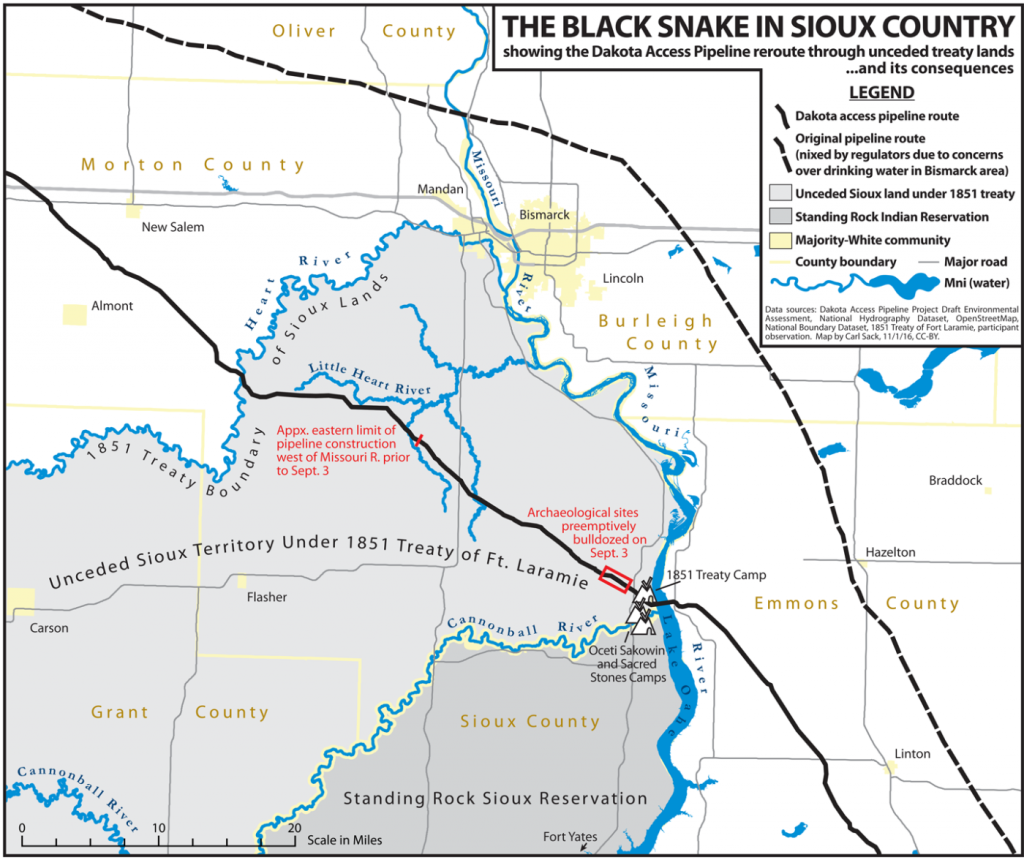
Guest post by Galen Charlton
This week of all weeks, we must acknowledge who was here first. Here are some thoughts from those opposing the Dakota Access Pipeline.
How to Talk About #NoDAPL: A Native Perspective by Kelley Hayes:
In discussing #NoDAPL, too few people have started from a place of naming that we, as Indigenous people, have a right to defend our water and our lives, simply because we have a natural right to defend ourselves and our communities. When “climate justice,” in a very broad sense, becomes the center of conversation, our fronts of struggle are often reduced to a staging ground for the messaging of NGOs.
Yes, everyone should be talking about climate change, but you should also be talking about the fact that Native communities deserve to survive, because our lives are worth defending in their own right — not simply because “this affects us all.”
We’ve always “Occupied the Prarie” and We’re Not Going Anywhere by the Elders and Leaders of the Sacred Stones Camp, Canonball River.
Sacred Stones Camp was begun by women, as a prayer. It is our prayer that the waters of the homelands of the Standing Rock Tribe and all the peoples of the Oceti Sakowin, the Seven Council Fires, or “Greater Sioux Nation,” remain pure. That includes the Missouri River and it’s tributaries, flowing into the Mississippi in the greatest river system within the continental boundaries of the United States.
Why the Founder of Standing Rock Sioux Camp Can’t Forget the Whitestone Massacre by LaDonna Brave Bull Allard:
We must remember we are part of a larger story. We are still here. We are still fighting for our lives, 153 years after my great-great-grandmother Mary watched as our people were senselessly murdered. We should not have to fight so hard to survive on our own lands.
My father is buried at the top of the hill, overlooking our camp on the riverbank below. My son is buried there, too. Two years ago, when Dakota Access first came, I looked at the pipeline map and knew that my entire world was in danger. If we allow this pipeline, we will lose everything.
We are the river, and the river is us. We have no choice but to stand up.
Today, we honor all those who died or lost loved ones in the massacre on Whitestone Hill. Today, we honor all those who have survived centuries of struggle. Today, we stand together in prayer to demand a future for our people.
And for more:
Resources for #NoDAPL in American Indians in Children’s Literature by Debbie Reese.
Standing Rock Syllabus by NYC Stands with Standing Rock
This syllabus can be a tool to access research usually kept behind paywalls, or a resource package for those unfamiliar with Indigenous histories and politics.
